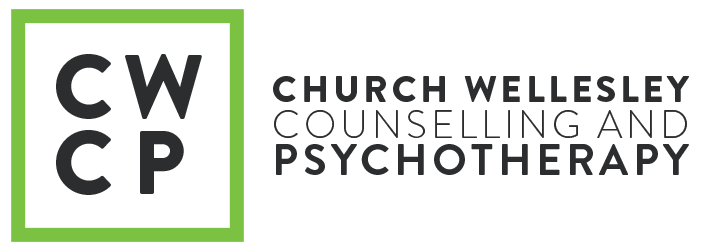“Honeymoon” is an essential stage of the relationship. It involves intense excitement, happiness, and infatuation between people. During this stage, everything seems perfect and there is a strong sense of admiration, attraction, and connection. Eventually, the honeymoon stage evolves when partners invest more of their identity / personality into the relationship which results in the dynamic moving into the “Pairing” stage (a.k.a., “Getting-Serious stage” or “Settling-Down stage”), whereby partners begin to expect / notice changes in the dynamic. Then BAM! Conflicts happen – even in the healthiest relationships. These conflicts are often challenging to navigate because we can trigger our partners’ insecurities – a favour the other partner often reciprocates.
What happens when we constantly get caught in the same conflict cycles over and over again? It gets exhausting, scary, and sometimes lonely. Relationship therapy can facilitate communication and provide a supportive and structured environment whereby partners can address conflicts with improved communication for the purpose of strengthening the relationship and promoting satisfaction. In other cases, individuals within the relationship can benefit more from individual therapy for the purpose of working on the issues affecting the relationship. And sometimes, partners can benefit from a combination of both individual and relationship therapy.
How does one decide which is better? Here are some questions to help you determine if you would want to seek individual or relationship therapy:
1. Do you feel disconnected from your partner and struggle to communicate or express your needs? Relationship therapy can enhance communication skills, facilitate emotional expression, promote understanding, and strengthen connection between partners. Therapy would help you and your partner(s) make sense of your feelings and learn how to share and receive this kind of information in a safe environment.
2. Are trust issues or betrayals affecting your relationship? Relationship therapy can help establish healthy boundaries, rebuild trust, and promote forgiveness and / or healing within the relationship. In therapy, you address attachment injuries to foster healing.
3. Are there mental health or personal concerns impacting your relationship? If so, individual therapy can provide a space for exploring personal challenges and working on self-growth, which can positively influence the dynamics of the relationship.
4. Does anxiety, depression, and / or stress impact your relationship? This would be a situation where a combination of individual and relationship therapy might be helpful in pursuit of supporting mental health and providing strategies for engaging with these challenges by processing them independently (individual therapy) and enhancing your partners understand of your struggles (relationship therapy).
5. Has there been a significant life changes or transition resulting in strains upon the relationship? Individual and relationship therapy can help guide adaptation to new circumstances and navigate the challenges associated with important life transitions. This is another situation where a combination of therapeutic modes can be helpful in complimentary ways.
6. Do historic emotional wounds and / or past traumas affect your relationship? Since our partners can trigger traumas from our past, individual therapy can help address and heal the way we manage these personal traumas, which can contribute to creating a healthier foundation for the relationship.
7. Are healthy boundaries (e.g., identifying, establishing, and maintaining) a challenge for you or the relationship? Individual and relationship therapy can provide tools and strategies for establishing and reinforcing boundaries, which is vital for a balanced and respectful relationship.
8. Is personal growth and development within the relationship a consideration of yours? It may be challenging to focus on oneself when you are entangled in day-to-day relationship matters. Consequently, individual therapy can support personal growth, self-awareness, and self-reflection, positively impacting relationship dynamics.
9. Are you considering separation or divorce? Relationship therapy can facilitate open and honest communication, explore options, and provide guidance for making informed decisions regarding the relationship’s future.
10. Does addictive behaviour or substance abuse impact your relationship? Both individual and relationship therapy can address addiction issues with individual therapy often focusing on addiction treatment. In contrast, relationship therapy offers support to communication and relationship dynamics.
11. Do you feel overwhelmed and emotionally burdened within your relationship? Combining individual and relationship therapy can provide emotional support, stress management strategies, and tools for better engaging with relationship-related challenges.
12. Are you feeling isolated or lacking support within your relationship? Individual and relationship therapy can offer a supportive space to explore and address feelings of isolation, fostering connection and a sense of belonging.
13. Have you attempted to work on your relationship independently without significant progress? Seeking professional support through relationship therapy can bring new perspectives, strategies, and techniques to facilitate progress and overcome impasses.
14. Are you motivated and committed to invest time and effort into therapy to improve your relationship? Both individual and relationship therapy require active engagement and commitment from the partners. A genuine willingness to invest in therapy indicates the potential for growth, positive changes, and resolution in the relationship.
These guide questions can offer general insights. Some of the above issues may sound familiar to many of us. However, we are unique – and so are our relationships. If you feel you need more guidance to make a choice, it is important to consult with a therapist who can provide more direction and recommendations based on your specific circumstances.
Below are some book recommendations that can be helpful for individuals wanting to enhance relationship dynamics:
Hold Me Tight: Seven Conversations for a Lifetime of Love
by Sue Johnson, Ed.D.
(For communication and relationship skills)
Support a local bookstore:
- Books and Company, Picton, ON:
https://pictonbookstore.com/item/RaYKuRIOnYbA7tMh7NyzaQ - Caversham Booksellers, Toronto, ON:
https://www.cavershambooksellers.com/search/9780316113007 - Mac’s Fireweed Books, Whitehorse, YT:
https://www.macsbooks.ca/item/RaYKuRIOnYbA7tMh7NyzaQ
The Dance of Connection: How to Talk to Someone When You’re Mad, Hurt, Scared, Frustrated, Insulted, Betrayed, or Desperate
by Harriet Lerner, Ph.D.
(For conflict resolution and problem-solving)
Support a local bookstore:
- Books and Company, Picton, ON:
https://pictonbookstore.com/item/yHd89mBXRB8KE6PefVJ14g - Caversham Booksellers, Toronto, ON:
https://www.cavershambooksellers.com/search/9780060956165 - Mac’s Fireweed Books, Whitehorse, YT:
https://www.macsbooks.ca/item/2QHtVTCGJR8Z_4NaHY63kw
Attached: The New Science of Adult Attachment and How It Can Help You Find – and Keep – Love
by Amir Levine, M.D. and Rachel S.F. Heller, M.A.
(For individual growth within relationships)
Support a local bookstore:
- Books and Company, Picton, ON:
https://pictonbookstore.com/item/AMVz-5Zf8QT8KFrV5D9Rbg - Caversham Booksellers, Toronto, ON:
https://www.cavershambooksellers.com/search/1585429139 - Mac’s Fireweed Books, Whitehorse, YT:
https://www.macsbooks.ca/item/AMVz-5Zf8QT8KFrV5D9Rbg


